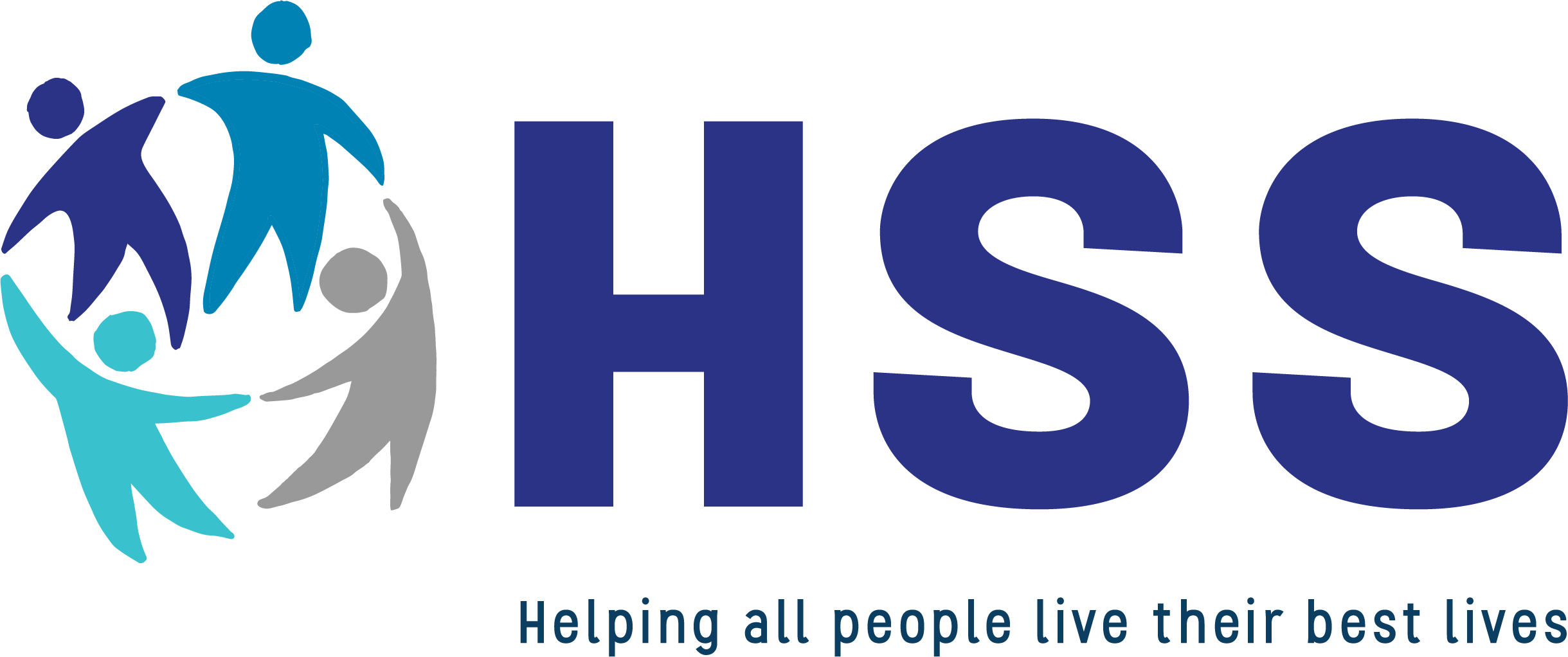
Illinois’ Chronic Underfunding of Wages for Direct Caregivers Causes Turnover, Staff Issues at Agencies like HSS

One worker spends his nights caring for adults with intellectual disabilities, and his days working a job part-time to make ends meet. Two others left their caregiver jobs last year to become waitresses, choosing better pay over a fulfilling career they loved.
Many more here at Human Support Services (HSS) are logging 60-plus hour work weeks just to provide for themselves and their families.
The work can be as physically and emotionally challenging as it is rewarding. Yet day in and day out, our staff show up and make a difference in so many lives.
“Our direct service professionals (DSPs) help individuals with developmental and intellectual disabilities or severe mental health concerns thrive in their daily routines,” said Anne Riley, executive director of HSS. “Activities vary from helping them bathe and use the restroom to cooking meals and accompanying them on outings where they learn job or life skills.”
They work tirelessly, sacrificing so much for others, yet year after year have to settle for pay that is less than they deserve due to the state’s chronic underfunding of disability services.
The pay for a DSP barely keeps up with minimum wage, with a starting rate of $13.38 per hour.
Lean State Budget Impacts Clients and Staff
Years of lean budgets in our state have left their impact in other ways, too: causing cuts to services and programs, and long wait-times for individuals who need our help.
But because HSS is committed to providing the same person-centered care that we always have, the impact is most significantly felt by our staff. These are individuals who work important, intensive jobs that MUST be done — but who cannot get paid what they’re worth.
“If you work here, you have to work 50 hours a week to make what you make at Target and we’re taking care of people,” said Bobbi Candler, one of our residential site managers at HSS. “We are struggling to get staff and to keep staff. Those who do stay are working and working and working and they are getting burnt out.”
Right now, HSS has 46 direct service professionals serving 64 clients who need their assistance. Ideally, we’d like the number of DSPs to be 58.
But with wages that can’t compete with even fast food restaurants, getting and keeping qualified staff is an uphill battle. Our turnover rate is 49 percent.
“It’s disheartening, because these are professionals who love their jobs, and who have an innate desire to help others and make our community better. Many also have an emotional attachment to the profession, winding up here because they have a friend or relative with a developmental disability. But they are forced to leave, because they need to be able to pay their bills and/or support their families,” Candler said.
Agencies Call for Increased Funding for I/DD Services
Since 2011, Illinois has been under a court decree to provide more sustainable funding for intellectual and developmental disabilities (I/DD) services. But even last year’s significant budget increase was not enough to offset years of underfunding and a critical workforce shortage during the COVID-19 pandemic.
This month, which is Developmental Disabilities Awareness Month, HSS is joining other members of the Illinois Association of Rehabilitation Facilities in asking the legislature and Governor Pritzker to prioritize people with disabilities in this year’s budget.
The legislative push is called a March that Matters.
“If the state legislature and Governor Pritzker cannot do more to prioritize people with disabilities in this year’s budget, we will surely reach a crisis state — if we are not there already,” Riley said. “HSS will continue to do everything it can to make sure the impact does not reach the people we serve. But that means our agency, and our workers, will feel the brunt of the shortfall.
“We will continue to try to do more with less in a job that is already so physically, mentally and emotionally demanding. Because the people who work here are invested in our mission, which is to ensure all abilities are embraced and everyone is encouraged to pursue their greatest potential. But it will not be easy, and we will continue to battle a workforce shortage that sends talented, caring individuals to less-demanding jobs with higher wages and better benefits,” Riley said.
March That Matters – Effort to Push New Funding
The March that Matters effort includes a push for about $246 million in new state funding for Fiscal Year 2023, which begins July 1, under the proposal developed in 2020 by the state and advocates called Guidehouse. The Pritzker Administration has proposed about $95 million in new state money for next year. The main difference in the proposals involves wage levels to recruit and retain staff to meet individuals’ needs.
The Guidehouse study calls for, among other things:
-
- Funding wage rates for direct service professionals (DSPs) at 150 percent of the state’s minimum wage, which reaches $15 an hour by 2025
- Improved reimbursements for 24-hour staffing, and to better reflect the actual cost of providing services to meet people’s varied individual needs in response to federal mandates
“We are asking our elected officials and Governor Pritzker not to leave people with disabilities behind,” Riley said. “Illinois finally has a stable budget and it’s time to invest in the system that cares for our friends, neighbors, and family members with disabilities.”
You can help by encouraging our legislators to increase funding for services for individuals with intellectual and developmental disabilities, and educating your friends and families about the importance of agencies like HSS.

